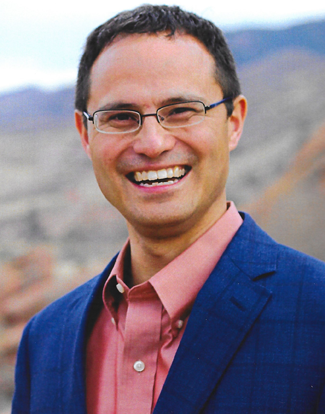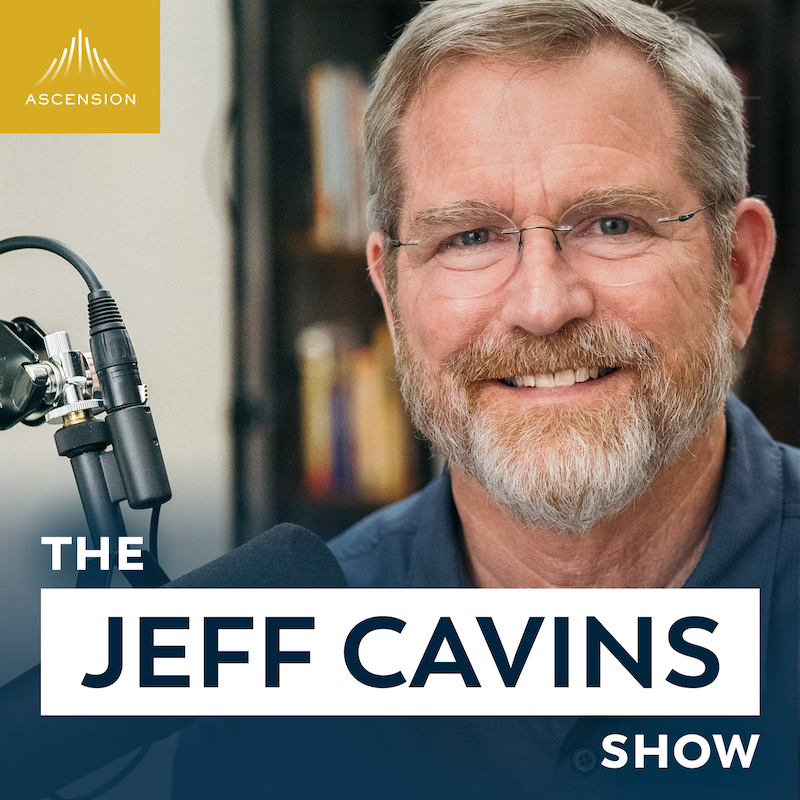At every Mass, Jesus invites us to be his bride in the mystical wedding supper of the lamb. Today, Dr. Sri unpacks the biblical significance of the image of the wedding supper of the lamb mentioned in the book Revelation, and helps us see Christ as the bridegroom of our souls.
Snippet from the Show
“Every Mass is a mystical marital union with our Lord Jesus Christ, the bridegroom of our souls.”
Shownotes
“
After the consecration, the priest says one of my favorite prayers in the Mass- “Blessed are those who are called to the supper of the lamb”. This prayer is incredibly significant because it highlights the closeness that God desires to have with each one of us. When we receive Jesus in Holy Communion, we are receiving his body, blood, soul, and divinity. Receiving our Lord in the Eucharist is the most intimate union we can have with God here on earth. However, we don’t always feel God’s closeness when we receive Communion. In order to appreciate the beautiful gift of Holy Communion, we have to understand what we are being invited to participate in.
Every time we receive Jesus in Holy Communion, we are invited into the marriage supper of the lamb, the heavenly banquet, the mystical wedding feast of the lamb mentioned in the book of Revelation. The prayer that references the wedding feast of the lamb is a climatic moment in Scripture. Let’s look at the context of this prayer:
After this I heard what seemed to be the mighty voice of a great multitude in heaven, crying,
“Hallelujah! Salvation and glory and power belong to our God,
for his judgments are true and just;
he has judged the great harlot who corrupted the earth with her fornication,
and he has avenged on her the blood of his servants.”
Once more they cried,
“Hallelujah! The smoke from her goes up for ever and ever.”
And the twenty-four elders and the four living creatures fell down and worshiped God who is seated on the throne, saying, “Amen. Hallelujah!” 5 And from the throne came a voice crying,
“Praise our God, all you his servants,
you who fear him, small and great.”
Then I heard what seemed to be the voice of a great multitude, like the sound of many waters and like the sound of mighty thunderpeals, crying,
“Hallelujah! For the Lord our God the Almighty reigns.
Let us rejoice and exult and give him the glory,
for the marriage of the Lamb has come,
and his Bride has made herself ready;
it was granted her to be clothed with fine linen, bright and pure”—
for the fine linen is the righteous deeds of the saints.
And the angel said to me, “Write this: Blessed are those who are invited to the marriage supper of the Lamb.” And he said to me, “These are true words of God.”
– Revelation 19:1-9
Right before this prayer in Revelation 19:9, we see the rapid fire of succession of the angels praising the Lord by proclaiming “Hallelujah”. This glorious succession of praise captures the pinnacle of the wedding feast of the lamb, which is the mystical wedding feast between God and his Church. The most profound image that portrays God’s closeness is that of marriage. The bridal imagery of the wedding feast of the lamb signifies the close union God wants to have with each one of us. The image of God as a bridegroom, who wants to marry his people, is repeatedly seen throughout both the Old and the New testament. Every time we go to Mass, the priest echoes the angelic invitation in Revelation 9. When we hear this prayer, may we remember that we are getting a wedding invitation to the Lord’s heavenly banquet and we are the bride. This beautiful prayer awakens us to the reality that Holy Communion is profoundly marital because it is Jesus himself coming down to dwell within us and unite himself to us.
Resources
- Visit Dr. Sri’s website at www.edwardsri.com and to book online events with Dr. Sri email events.edwardsri@gmail.com
- Find more of Dr. Sri’s episodes at www.ascensionpress.com/allthingscatholic
- Ascension is pleased to offer our new and improved online bible study programs and sacramental preparation programs digitally to help you minister with flexibility. Go to www.ascensionpress.com to view all our offerings

Dr. Edward Sri is a theologian, well-known Catholic speaker, and author of several best-selling books. His work with Ascension includes study programs such as A Biblical Walk Through the Mass, No Greater Love: A Biblical Walk Through Christ’s Passion and Mary: A Biblical Walk with the Blessed Mother. Several of Dr. Sri’s programs were filmed on-site in the Holy Land, and feature immersive video explorations of the sacred sites where Jesus, Mary, and the Apostles lived and died.
Dr. Sri is the host of the acclaimed Ascension podcast All Things Catholic with Dr. Edward Sri. Together with Curtis Martin, Dr. Sri is a founding leader of the Fellowship of Catholic University Students (FOCUS), of which he serves as senior vice president of Apostolic Outreach.
Dr. Sri lives with his wife Beth and their children in Colorado.






I’m not finding the date of this teaching? So, I’m aware no one may see it.
I’m posting these questions for clarity and am not interested in arguing since you are more knowledgeable than I. Just FYI.
First, I’m interested in the time-line of events. There seems to be a disconnect between what is often taught and how this parable is written.
For example, it reads as though there is a first “mini apocalypse”, if you will. Then, it seems a group enters excited about a wedding feast. After that, another apocalypse occurs and then final judgement when the rewards and punishments are distributed. Am I understanding this time-line as it is recorded? Also, in connection to that question, I am understanding this to mean the wedding feast took place prior to the apparent second apocalypse. I have read writings that agreed with this interpretation, and others that don’t. Could you please correct any error in my thinking with Scriptural evidence?
Second, in referring to the Church as the bride, I have always believed this is more than a metaphor. The bride has a choice of leaving her lamp without oil or fighting the hard fight to fill it.
My question then is in regards to the mass. Wouldn’t mass and Communion be more akin to being reminded the groom has proposed on a dinner date. This would maintain the symbols in connection with the parable, right?
One; The groom’s courting of the bride. Two; Sharing the intimacy of a candle lit meal and getting to know one another.
Three; through the Host the bride and groom grow from two to the one they must learn to be.
Four; a repetition of the groom’s proposal/invitation to the wedding.
Five; a preview of the life they will have together.
I just don’t see mass and the Eucharist as a part of the wedding, itself.
It probably makes little difference. But, when I explain to others, it’s important that I’m as correct as possible. Thank you for taking the time to read this.
Pax et Bonum
Mitzi Feo